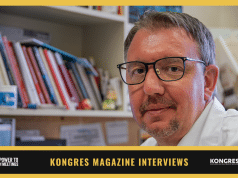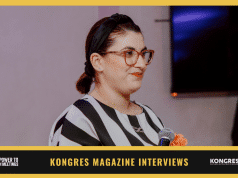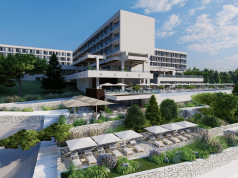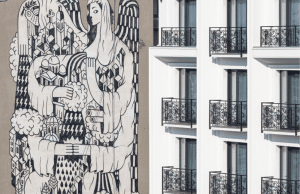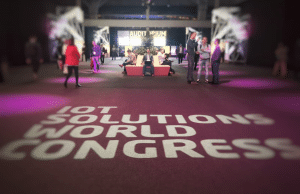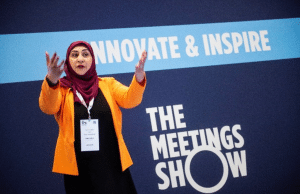What kind of a meetings destination is Slovenia?
This is a very broad question and as the Director of the Slovenian Convention Bureau I could dedicate an entire article to it. Slovenia is undoubtedly still an emerging congress destination in Europe, mostly from a profile perspective. Some still refer to us as a “Best kept secret”. On one hand this is very flattering, on the other hand it hinders our development. Considering our location, size and variety of our offer, and rich natural, cultural and historical heritage, the meetings industry is in our blood. It’s a shame the decision makers haven’t caught up with this way of thinking yet.
What are Slovenia’s unexploited advantages for hosting a congress?
Every year we make progress in the development and recognition of Slovenia as a congress destination. We look for possible synergies between public and private interests. The biggest progress would be made if we were able to establish a well-rounded congress destination or a long-term cooperation. With that the destination would recognise its roles in marketing and acquiring all kinds of events. The state benefits most from all types of meetings, so its role in developing the meetings industry and supporting the national Convention Bureau should be much greater, since the benefits would be enormous.
What makes us better than our competition in neighbouring countries?
In the meetings industry our competition is the entire world. For every project the clients receive multiple offers from destinations in Europe or worldwide. If this is the case, who are our main competitors and who are our neighbours? We have been competing with a variety of countries, therefore we are aware we are competing with the entire world. Our every project needs to be carefully prepared and we need to check who our potential competitors are and work with that. Of course, we firstly have to fulfil the technical conditions. The offers of the countries in the region are supplementary more than anything else. When comparing their offers in detail we come to very different results. Here the professionalism of the staff and their exposure to the international environment comes into play.
Data on the performance of Slovenian tourism in 2011 is positive. What is the realistic picture of tourism and the meetings industry?
According to the Statistical Office of the RS, in 2011 Slovenian tourism achieved positive results in the area of incoming tourists and overnight stays. In any case this is a positive outcome, yet unfortunately we don’t have the data on who these guests are, where they stayed, how much they spent and other important information, which would help us plan new investments and develop strategies. Unfortunately the picture of our tourist suppliers isn’t good and hasn’t changed for years. The index in the meetings industry is better than in regular tourism. Considering the spending of international event participants the focus on the meetings industry will continue. New hotel investments are giving more attention to this industry than most of the current suppliers.
What would be the first thing you would do if you were the Minister of Tourism?
I don’t know if we can establish a Ministry for Tourism in these difficult economic times, but it would certainly be an interesting challenge. First we would need to establish a better cooperation between tourism and the government or the public sector. Actually the government should be a kind of service to the economy since it needs to create an environment in which the economy can prosper. With it, Slovenia would have a better chance to carry out all that policies and activities that are the responsibility of the state. Where there is no pure economic interest we would develop public-private partnerships. With these we would establish an important and key bond between public and private interests and we could carry out wider projects. In the current global economy we should help develop success stories, which are the result of domestic knowledge, are sustainable and enable long-term progress.
What does ‘responsible meetings industry’ mean to you?
A responsible meetings industry demands a very wide inclusion of all participants, from the supplier, client and participant side. We know the stakeholders of international meetings are more environmentally conscious, which makes it easier for us to follow this agenda. It is, however, important to ask how the client sees it. Of course, the biggest initiatives should come from the government, destination and supplier, in that order. It doesn’t help if, for example, we have the most sustainable congress hotel, yet the destination pays no attention to this area. An important role is played by the state, which develops this industry through its tools. The state plays a bigger role that is not only linked to expenses. A shining example are the Danes, who prepared a protocol for COP 15, and now when Denmark holds the presidency of the EU they will certify their events and make Denmark a top sustainable country. Their approach is very thoughtful and successful. The entire country will benefit from it – the economy and the public sector.
What do you expect from your current term as Director of the Slovenian Convention Bureau, a role that started in 2009?
My second four-year term will end in September 2014 and by then I would like to make the meetings industry one of the main tourist products of Slovenia, not just on a declarative level. The aim is to provide a well-rounded destination where private-public partnerships are necessary, which would be more successful if the cooperation was operative and long-term in the area of promotion and marketing as well as product development. Also, I’ve always put a lot of emphasis on education and professional training, so in a few years Slovenia will have professional experts in the area of the meetings industry who will be as competent as their counterparts abroad. Original and sustainable stories will consolidate Slovenia on the international meetings market.
Which qualities should a good director of a national convention bureau have?
I think they first have to understand the role of the Convention Bureau towards clients as well as the industry it represents. The experience from the meetings industry is very welcome, if not crucial. This is not a political function and all parties expect very competent solutions. Undoubtedly this person has to be excellently connected with the international environment, open to new ideas and innovation, have the ability to bring people together and find common solutions in favour of the industry and the country.
How can Slovenia attract more foreign congress guests?
Firstly, set an appropriate role for the Slovenian Convention Bureau, then as a national destination (in cooperation with convention bureau members) start acquiring international scientific congresses. Secondly, in cooperation with the members, I would focus on key countries and conduct appropriate marketing activities, which would attract the agency as well as corporate market. We are all aware that air access is one of the main priorities when competing with other destinations. Here we need to connect all the private and public actors to establish new air connections to important destinations.
How important is the Conventa Trade Show for Slovenia and Ljubljana?
In a very short time Conventa has become an event known for quality and energy and has caught the attention of many people around Europe. Even though Conventa represents SE Europe, Ljubljana and Slovenia also get the opportunity to present themselves. What the are benefits for Slovenia and Ljubljana is mostly up to those behind their promotion. Undoubtedly this is the biggest marketing project for Ljubljana / Slovenia / SE Europe. With the Conventa Trade Show we are putting SE Europe as a well-rounded meetings destination on the global congress map. Everyone in marketing knows what that means.
What kind of reputation do Slovenian companies and experts enjoy in the region of SE Europe?
They certainly have a better reputation than in Western Europe and beyond. It’s a pity we started being aware of this too late. Many international companies have already settled in this part of Europe. Of course, our reputation was not given to us but is the fruit of many years of building an image even inside the former Yugoslavia.
How does Slovenia’s journey towards a low-carbon meetings industry look?
Personally, I hope it’s brief and as comfortable as possible; we have the conditions for it. What we’re missing are national strategies to guide and help active companies in this direction. I can again highlight the best practice example from Denmark.
What is your favourite getaway for holidays?
Around two years ago the seaside town of Piran became my new home. This is where I spend most of my free time and where I find my personal peace.
Which national culture are you closest to?
I respect all cultures, since they enrich the world and the people getting to know them. I have worked on almost every continent and have acquired rich and wonderful experiences. During the development stage of Conventa I annually visit almost every country of SE Europe and I always get reminded that we live in a really interesting region.
Which music fills you with adrenaline?
I must confess I’m not a musical connoisseur. I like to listen to it and choose it according to the mood. From classical to rock, pop, and even electronic. I have to admit that the Croatian singer Gibonni has been my favourite for years now, I always go to his concerts because they fill me with energy.
Are you a sports fan?
Sports, especially running and triathlon, are the right counterbalance to my work challenges, so I am rather a passionate amateur sportsman, than a passionate fan. Of course I always cheer for Slovenia at large sports events and try to be aware of what sportsmen have to do for their success. They should be an inspiration to all of us.
Your life’s motto?
“Be the change you want to see in the world” – Gandhi.


